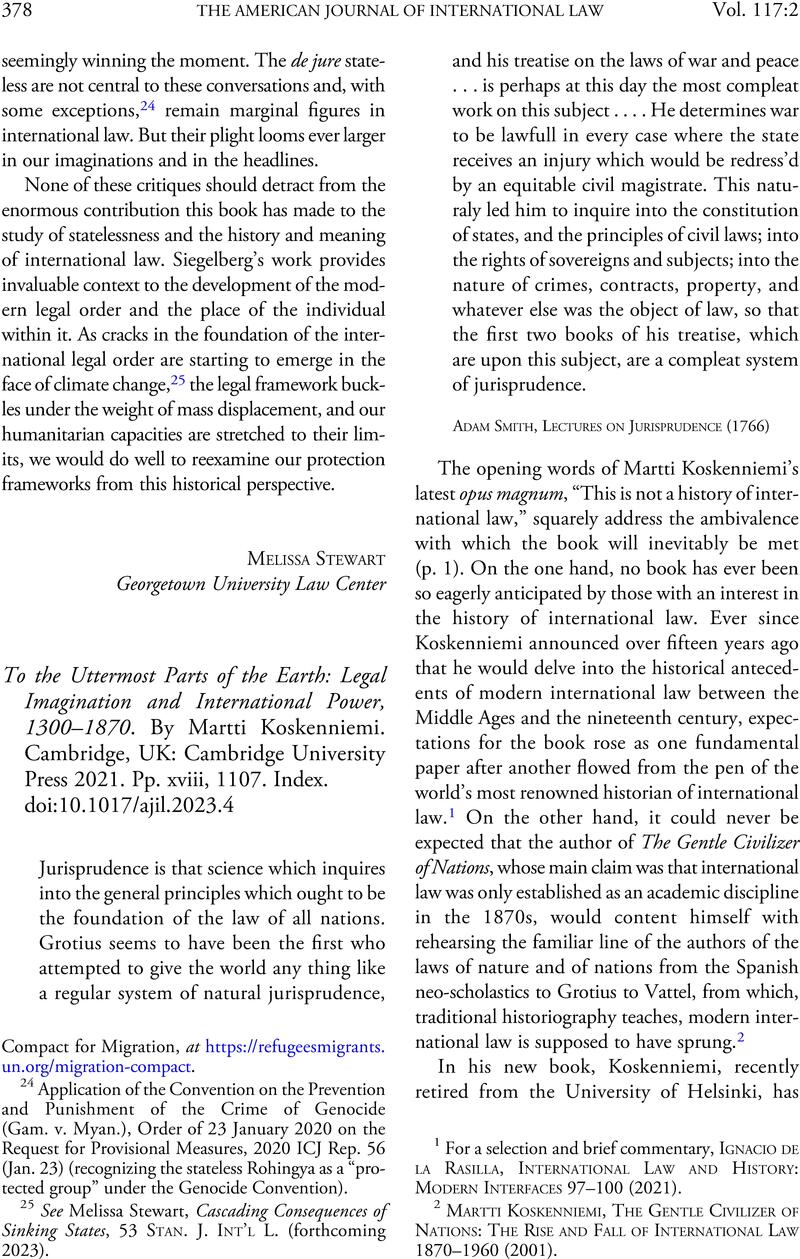No CrossRef data available.
Published online by Cambridge University Press: 13 April 2023

1 For a selection and brief commentary, Ignacio de la Rasilla, International Law and History: Modern Interfaces 97–100 (2021).
2 Martti Koskenniemi, The Gentle Civilizer of Nations: The Rise and Fall of International Law 1870–1960 (2001).
3 Paolo Amorosa, Rewriting the History of the Law of Nations: How James Brown Scott Made Francisco de Vitoria the Founder of International Law 140–46 (2019).
4 The most important works on the significance of late-medieval law for the long-term history of international law are: Peter Haggenmacher, Grotius et la doctrine de la guerre juste (1983); and Dante Fedele, The Medieval Foundations of International Law: Baldus de Ubaldis (1327–1400), Doctrine and Practice of the Ius Gentium (2021).
5 Ignacio de la Rasilla del Moral, In the Shadow of Vitoria: A History of International Law in Spain (1770–1953) 154–223 (2018).
6 E.g., Richard Tuck, The Rights of War and Peace: Political Thought and the International Order from Grotius to Kant 16–50 (1999).
7 Koskenniemi, Martti, Imagining the Rule of Law: Rereading the Grotian “Tradition,” 30 Eur. J. Int'l L. 17 (2019)CrossRefGoogle Scholar.
8 Rafe Blaufarb, The Great Demarcation: The French Revolution and the Invention of Modern Property (2016).
9 Koskenniemi, Martti, Between Coordination and Constitution: International Law as a German Discipline, 15 Redescriptions: Y.B. Pol. Thought, Conceptual Hist. & Feminist Theory 45 (2011)Google Scholar.
10 Compare the role given to Pufendorf in her work on the evolution of customary role, see Francesca Iurlaro, The Invention of Custom: Natural Law and the Law of Nations, ca. 1550–1750, at 141–61 (2021).
11 Anne Orford, International Law and the Politics of History (2021).